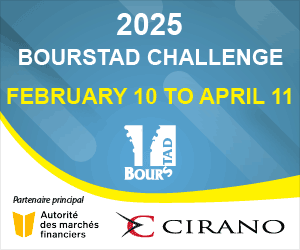BACKGROUND
Delta School District staff and the Board of Trustees are committed to a thoughtful, strategic, and student-centred approach to balancing the budget each year. A balanced budget is a stipulation of the School Act.
2024/25 BUDGET OVERVIEW
The Annual Operating Budget for 2024/25 is $197.486 million, up by $772 thousand from the 2023/24 Amended Annual Operating Budget of $196.714 million.
The district anticipates a decrease in enrolment of 89 full-time enrolled [FTE] students for the 2024/25 school year, bringing the student FTE total from 16,280 in the 2023/24 Amended Annual Operating Budget to 16,191 student FTE forecasted for the upcoming year.1
The district is projecting a shortfall in its Annual Operating Budget for 2024/25. At $1.388 million, the shortfall makes up approximately 0.7% of the 2024/25 budgeted operating expenses.
To balance the budget in the most sustainable and strategically effective way possible, the district will continue to adopt a budget balancing strategy based on the following themes:
- Ensuring that any proposed reductions have the least impact on students.
- Making decisions based on sound educational objectives and considerations.
- Decreasing program areas that have had limited impact on student success and wellbeing.
- Mitigating risk and ensuring long-term sustainability by reducing the reliance on Reserve funds.
- Navigating ongoing financial constraints to ensure a balanced budget.
Approximately 90% of the district's operating costs are staffing related. As always, the district staffs schools and provides resources based on student needs, enrolment trends and in compliance with the district's collective agreements.
1The enrolment numbers are early estimates and subject to change. The final funding received will reflect the actual enrolment numbers reported once the 2024/25 school year has started.
MINISTRY OF EDUCATION AND CHILD CARE FUNDING ANNOUNCEMENT
The Ministry's Funding Announcement on March 14 resulted in a total Operating Grant of $174.491 million for the Delta School District. The Per Pupil amounts increased by 3.4%.
The Operating Grant increase aims to cover wage increases for teachers, support staff and non-educator exempt positions. The province will also fund the 1% cost of living allowance for these staff. This year's Operating Grant is the highest received by the district. However, it has not addressed the full impact of inflation and other costs, including increases to EI, WorkSafe, benefit premium rates and overall benefit rate increases.
FACTORS INFLUENCING THE BUDGET
School districts in B.C., including the Delta School District, continue to experience significant financial uncertainties and volatility arising from complex variables, including fluctuating student enrolment, rising inflation impacting unavoidable costs and significantly larger absence-related costs, all of which need to be considered when formulating the budget.
This year, the graduating Grade 12 cohort is larger than the anticipated incoming Kindergarten cohort resulting in a predicted decrease in overall student enrolment for the upcoming school year. In addition, the district estimates that the number of Indigenous students will remain the same next year, while there will be a decrease of 87 Inclusive Learning students in Levels 1, 2 and 3, and a decrease of 13 English Language Learners (ELL) compared to the 2023/24 Amended Annual Operating Budget. Staffing levels are adjusted as needed to reflect actual student enrolment.
Work absenteeism due to illness remains very high across Canada. The district, like most organizations, continues to see a significant increase in illness costs. Since the pandemic, people are more inclined to stay home from work if they are unwell to avoid spreading their illness to others in their workplace. This represents a significant emerging cost that needs to be addressed as the trend of elevated absenteeism due to illness is not likely to ease. The district continues to have strategies in place to support staff health and wellness.
Although the outlook for the International Student Program (ISP) remains positive with enrolment returning to pre-pandemic levels, the revenue generated by the program is not as high as before. Simultaneously, agent commissions continue to increase significantly and department costs such as student recruitment-related travel are heavily impacted by inflation. The district is increasing future ISP program fees to help address these factors but must also consider what the market will bear. As a result, the district will need to take a cautious approach and not overly rely on ISP revenue to supplement Ministry funding.
While a small increase in investment income will assist with budget balancing this year, this source of funding cannot be relied on. In future years, we expect a significant downward trend in interest rates that will add to the budgetary pressures moving forward.
After years of reductions, there is very little flexibility remaining in the budget. Because the financial situation is so challenging, in a departure from recent years, departments were asked to build a budget from scratch rather than the usual approach of trimming their current budget. This approach, known as zero-based budgeting, helps to ensure that the most strategic and important initiatives are included in the budget. This means the budget was developed with a focus on initiatives that support the district's strategic objectives and Vision for 2030.
In addition, the budget was restructured to ensure that ongoing costs, inflationary increases, and areas of potential risk are included.
THE 2024/25 BUDGET SHORTFALL COMPOSITION
There is a preliminary shortfall of $1.388 million. The key drivers of this shortfall include, but are not limited to:
- Unfunded wage and benefit increases1
- Unavoidable inflationary increases and other non-salary related cost pressures2
- New technology and cybersecurity related software licensing
- Illness cost increases
- Increase in investment income
- New government grant net contributions
- Slight upward adjustment to the pupil-teacher ratio at secondary school level by 0.5
1The Ministry funding is not sufficient to cover all staffing changes or certain increases such as extended health and dental, enhanced Canada Pension Plan, Employment Insurance and WorkSafe.
2For example, utilities, bussing, International Student Program agent commissions, insurance, legal and other miscellaneous costs.
2024/25 BUDGET BALANCING APPROACH AND RECOMMENDATIONS
As in previous years, the district is recommending a budget strategy that ensures the proposed changes have the least possible negative impact on students and classrooms. This means being strategic to ensure continued proportionality of staffing and operating in the most cost-effective manner possible.
As always, the district remains committed to fully funding its operations without undue reliance on uncertain funding sources. The district proposes to balance the budget by introducing several operational savings and using other sources of funding to ease pressure on the operational budget.
Balancing Initiatives - $1.388 million
- A decrease in administration costs and supplies. [$46 thousand]
- A reduction of one unfilled teacher FTE position will provide savings without impacting the classroom. [$89 thousand]
- Efficiencies in the Learning Support Teacher program will result in cost savings district-wide while still maintaining student/staff ratios higher than required. [$392 thousand]
- Unintended hiring delays, a result of the current competitive labour market, often lead to a delay in filling vacant positions which can result in some of the budget allocated to salaries remaining unspent. The anticipated savings in salaries that arise from the regular recruitment process can be used to help balance the budget without reducing actual FTE positions. [$409 thousand]
- Special purpose funding is available following the phasing out of program areas that have limited impact on student learning. This can be used to support some EA staffing that is currently paid for by the Operating Fund. [$139 thousand]
- As a result of the new Feeding Futures Fund from the provincial government, there is a saving available from the re-allocation of the district's long-standing Operating Fund food program that is fully aligned with the intent of the Feeding Futures program. [$34 thousand]
- Additional International Student Program revenue, cautiously reflecting the program's recovery trends in recent years, are available to help balance the budget. [$279 thousand]
COMMENTARY
"Like all other school districts, the Delta School District continues to face budgets that have experienced years of reductions and ongoing budgetary pressures from operating in tight financial times. While we are pleased that the Ministry has increased the Per Pupil amounts by 3.4% for next year, unfortunately it's not enough to cover increased costs, which results in a shortfall. High inflation and increases to other unavoidable costs, including illness costs and rapidly increasing technology costs, combined with uncertainties in revenue sources, are exerting great pressure on our budget and require us to make reductions to some budget areas this year. Ultimately, we have to live within our means.
Feedback from rights-holders and stakeholders is key to guiding our decision-making around the school district's annual budget. As a result of limited participation in recent years, the district revised its budget public consultation process with the aim of increasing engagement and gathering more feedback from the community. This year, the district invited feedback via an online survey, as well as the more traditional channels of email, mail and through schools' Parent Advisory Councils. The approach resulted in more than 180 responses which highlighted support for Inclusive Learning as a top priority. Additional priorities identified for the budget include art, music, physical education and STEM, general classroom/equipment and a focus on learning the basics of reading, writing and arithmetic.
We have taken this feedback into consideration while also adopting a new approach to structuring this year's budget that will address ongoing and emerging cost pressures, help to protect the school district from risk and reduce negative impact on students and staff as best as possible while living within our means in increasingly difficult financial times.
The Delta Board of Education welcomes feedback on these Draft Budget Recommendations at the Public Board Meeting on April 23, by email or via an online survey."
Nicola Christ, Secretary Treasurer
Delta School District
The Delta School District is committed to being an innovative, inclusive community where all learners belong and everyone soars. Its mission is to inspire and nurture thriving, future-ready learners.
PUBLIC INPUT
Members of the public are asked to provide their input and feedback on the 2024/2025 Draft Budget Recommendations. Options for providing feedback include:
- Attending and speaking at the Draft Budget Input Public Meeting at 7:30 p.m. on Tuesday, April 23, 2024, at the School Board Office, 4585 Harvest Drive, Delta. To sign up to speak at the meeting, please email rsonsalla@deltaschools.ca by noon on Monday, April 22, 2024.
- Sending an email to budget@deltaschools.ca by noon on Monday, April 22, 2024.
- Completing the online survey (https://forms.gle/69ZdPF9LcrQXhVdX9 ) by noon on Monday, April 22, 2024.
The Delta Board of Education will consider all feedback received on the draft budget recommendations before amending and/or approving the budget for 2024/2025.
For more information on the budget process, please visit: https://www.deltasd.bc.ca/news-events/news/budget-consultation-process/. or view this handout.













